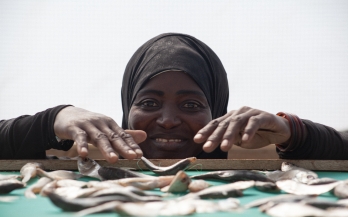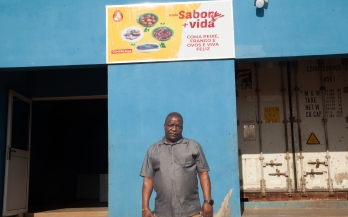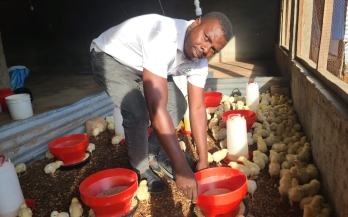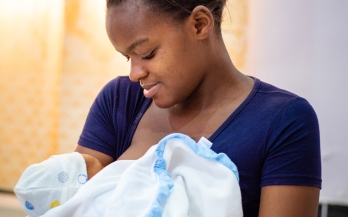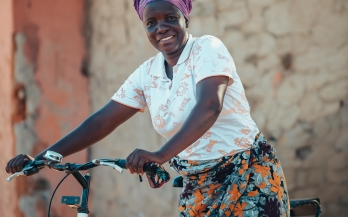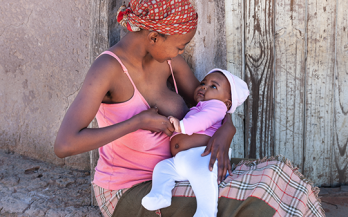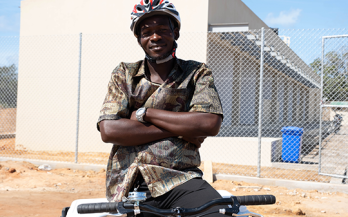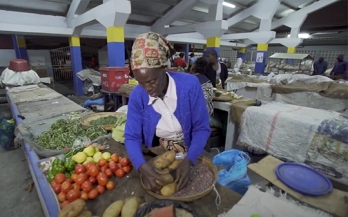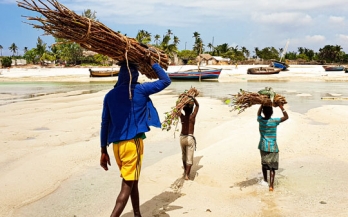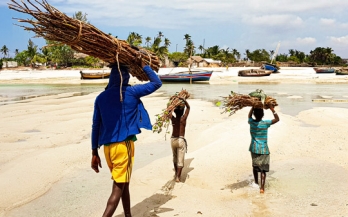Moma, Mozambique – When Islova Alberto Aly decided to venture into fish drying, her primary aim was to generate an income to support her children's education. Little did she know that her traditional fish drying methods—spreading fish on the ground by the Mucoroge beach, exposed to sand, dust, sun, and bacteria—would harm her community.
Chimoio, Mozambique – A white Hino truck rattles under its own weight on the bumpy road, while its tires throwing particles of dust from the asphalt in the air from the district of Cantandica, Manica province, central Mozambique.
Pemba, Mozambique – From the window of his house in Quissanga district, Cabo Delgado, Andrade Vitorino watched helplessly as his poultry farm collapsed due to strong winds and rains caused by cyclone Kenneth in 2019.
But since the 2017, it is the armed conflict in Cabo Delgado province that affected his business and various economic activities, as well as the functioning of food systems in the province.
“One day, a neighbour shouted that we were under attack, and we all ran away, leaving everything behind. A few days later I heard that everything had been burned down. Houses and everything, including my poultry,” said Andrade.
Seated on a plastic chair and turning his back to his house made of clay, in one of Pemba's neighbourhoods, where he is starting new life he says, “I didn't have time to take anything. Just my documents. My house, my aviary and my dreams were left behind.”
Breastfeeding not only contributes to positive nutrition and health outcomes, but also to environmental sustainability by significantly reducing the environmental footprint associated with the production, packaging, distribution and consumption of infant formula. The environmental benefits of breastfeeding are multi-faceted.
Previously, we showed how NutriBaik is changing lives through this story. Today, we talk to Ancha Monequete on why she “finds hope in NutriBaik”. Here we see how, through women the NutriBaik, women are playing their part in the functioning of food systems.
Through an innovative intervention called Emo Demos, about 12,680 women learned about the importance of breastfeeding. Meet Madalena, one of these women who learned to care for herself and her children during pregnancy and breastfeeding.
One of the biggest challenges street vendors face in Pemba and other parts of Mozambique, is having to travel long distances by foot, reaching more customers. NutriBike is an intervention to solve the storage challenges faced by street vendors. It provides street vendors suitable equipment for preserving and transporting their products maintaining quality, as well as enabling them to cover longer distances and faster.
"After losing my husband, and with a family to look after, I had to wipe my tears and battle to provide for my family. It was from there that I realised that I needed to be the breadwinner of the family, and I became a vendor at the Munhava Market in Beira city". Joana Celestina, a female vendor at the central market in Mozambique.
At the national level, Mozambique joins over 125 countries that have embarked on coordinating efforts for inclusive, multistakeholder Food Systems Summit Dialogues to engage around the vision of the "people’s summit".
According to the Cost of Hunger in Africa (2017), Mozambique loses approximately 10.9% of its annual GDP (1.6 billion Dollars) due to chronic malnutrition. It is therefore urgent that all sectors converge and identify solutions to mitigate the negative impacts of malnutrition.
